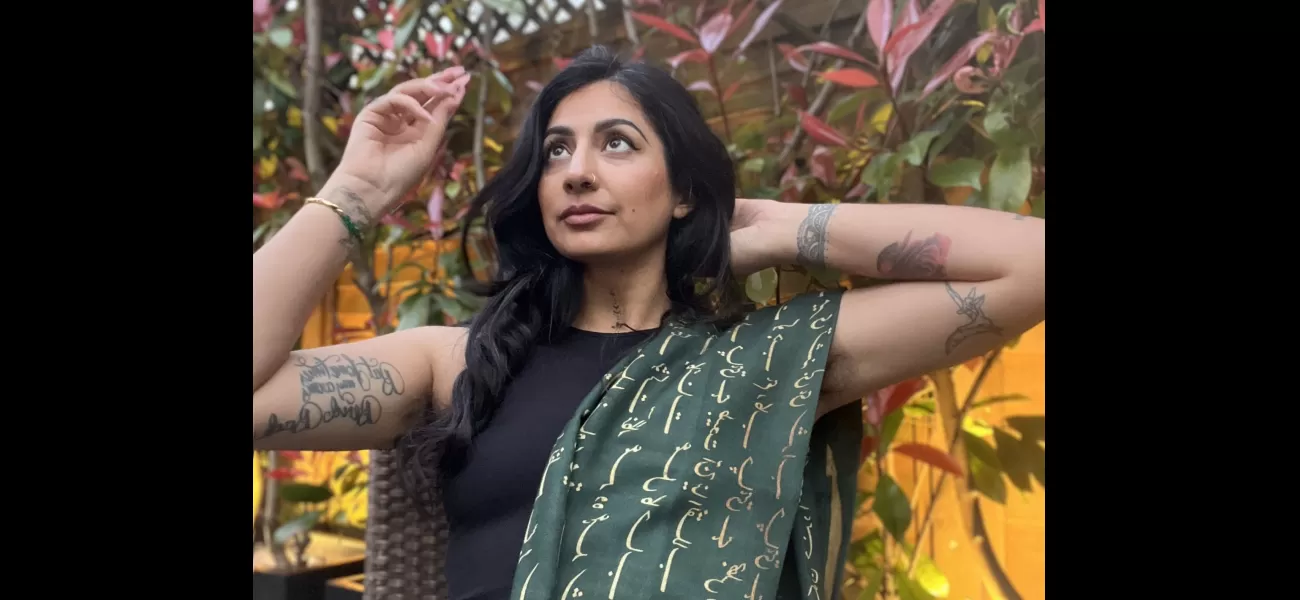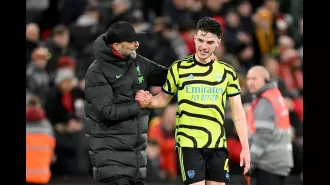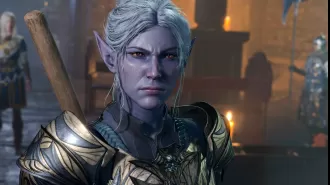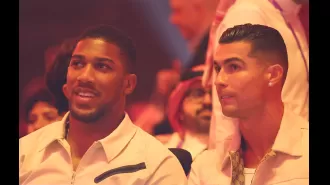My name is a constant reminder of my father's encounters with racism in the UK.
I interviewed my dad for my book Burning My Roti and inquired about my name.
July 20th 2024.

Our names hold significance in our lives. They are an integral part of our identities and reflect our personalities. So, it's no surprise that when I receive an email with my name spelled incorrectly, it immediately irks me. The first line reads, 'Dear Sharon,' and while it is my name, it's spelled incorrectly as 'Sharan.' This small difference may not seem like a big deal to some, but it makes me feel strange. It's as if I look down at my hands on the keyboard and watch the skin transform to white with no trace of my cultural background.
Names hold deep meaning and are often connected to our heritage and individuality. So, when I found out that my name was chosen by my father based on his own experiences with discrimination, it made me deeply sad. In an interview for my book, Burning My Roti, my dad matter-of-factly told me that he chose my name, but when I asked why he chose a more 'white-sounding' name, he sighed. He explained how since immigrating to England in the 70s, people have struggled to pronounce his name, Kuldip. He even shared instances of discrimination he faced, like being denied access to certain areas or being limited to menial tasks in a job.
But even when he eventually gained respect in his workplace, he still faced awkwardness with his name. This realization was a difficult pill to swallow. Our names are a part of our heritage, and they should be respected and pronounced correctly. My mother, on the other hand, had other ideas for my name. She wanted to name me Shweta, a beautiful name that she felt suited me. But my dad, being the stubborn man he is, stuck to his decision of choosing a name that would be easier for others to say.
I can't help but think of the name Shweta and attach it to my face. It's a name that I feel suits me and represents my cultural background, just like my ethnic jewelry, clothing, and food. But I'm left with Sharan, a fine name, but it doesn't hold the same significance for me. It's just a constant reminder of how my name was chosen to make things easier for others, rather than embracing my true identity.
This adjustment of names is not uncommon for people of color. In fact, many of us have to code-switch, adjusting our language, appearance, and even our names to fit into different cultures. This is especially true for underrepresented groups, and it's a topic that has been openly discussed in recent years. In the film Sorry To Bother You, the main character, played by LaKeith Stanfield, finds success in his job by adjusting his voice to 'sound white.' I watched this film with my dad, and he found humor in the main character's story because he saw himself in it. He too had to adjust his name to fit in, accepting the name 'KC' for three whole years.
Actress Uzoamaka Aduba also shared her experience of having her name mispronounced on The Ellen DeGeneres Show. She boldly stated, 'If they can learn to say Tchaikovsky and Michelangelo and Dostoyevsky, they can learn to say Uzoamaka.' Similarly, American comedian Hasan Minhaj corrected Ellen's pronunciation of his name on her show, stating, 'If you can pronounce Ansel Elgort, you can pronounce Hasan Minhaj.'
A 2023 poll conducted by Race Equality Matters revealed that 73% of respondents have experienced mispronunciation of their names, leading them to feel undervalued, disrespected, and like they don't belong. I can relate to these feelings as I've also experienced a sense of dissociation when my name is mispronounced. But I've learned to correct people because a moment of embarrassment is worth avoiding a lifetime of feeling alienated.
But the struggle with names doesn't end there. In emails, I've been called Sharon, Sharon Diwali, and during handshakes, I've been called everything from Sharaan and Shareen to Sharana, Samreen, and Shavan. It seems like people expect my name to sound more 'ethnic' than it looks. But the truth is, it's just a struggle to pronounce it correctly. I can understand this struggle to a certain extent, as I once accidentally signed off an email as 'Satan.' But our names hold significance, and they should be recognized and respected.
I wish people would ask my dad how to pronounce his name instead of awkwardly trying to pronounce it. I wish he had let my mum name me Shweta. I wish my name was Shweta, a name that proudly represents my Indian heritage, even if it's easily mispronounced. Instead, I'm left with a name that reflects my dad's racial trauma and causes me to make panicked adaptations during introductions. Our names are what make us unique and human, and they should never be disregarded or mispronounced. Do you have a story about your name? Share it with me by emailing jess.email. Let's celebrate our unique identities and voices, starting with our names.
Names hold deep meaning and are often connected to our heritage and individuality. So, when I found out that my name was chosen by my father based on his own experiences with discrimination, it made me deeply sad. In an interview for my book, Burning My Roti, my dad matter-of-factly told me that he chose my name, but when I asked why he chose a more 'white-sounding' name, he sighed. He explained how since immigrating to England in the 70s, people have struggled to pronounce his name, Kuldip. He even shared instances of discrimination he faced, like being denied access to certain areas or being limited to menial tasks in a job.
But even when he eventually gained respect in his workplace, he still faced awkwardness with his name. This realization was a difficult pill to swallow. Our names are a part of our heritage, and they should be respected and pronounced correctly. My mother, on the other hand, had other ideas for my name. She wanted to name me Shweta, a beautiful name that she felt suited me. But my dad, being the stubborn man he is, stuck to his decision of choosing a name that would be easier for others to say.
I can't help but think of the name Shweta and attach it to my face. It's a name that I feel suits me and represents my cultural background, just like my ethnic jewelry, clothing, and food. But I'm left with Sharan, a fine name, but it doesn't hold the same significance for me. It's just a constant reminder of how my name was chosen to make things easier for others, rather than embracing my true identity.
This adjustment of names is not uncommon for people of color. In fact, many of us have to code-switch, adjusting our language, appearance, and even our names to fit into different cultures. This is especially true for underrepresented groups, and it's a topic that has been openly discussed in recent years. In the film Sorry To Bother You, the main character, played by LaKeith Stanfield, finds success in his job by adjusting his voice to 'sound white.' I watched this film with my dad, and he found humor in the main character's story because he saw himself in it. He too had to adjust his name to fit in, accepting the name 'KC' for three whole years.
Actress Uzoamaka Aduba also shared her experience of having her name mispronounced on The Ellen DeGeneres Show. She boldly stated, 'If they can learn to say Tchaikovsky and Michelangelo and Dostoyevsky, they can learn to say Uzoamaka.' Similarly, American comedian Hasan Minhaj corrected Ellen's pronunciation of his name on her show, stating, 'If you can pronounce Ansel Elgort, you can pronounce Hasan Minhaj.'
A 2023 poll conducted by Race Equality Matters revealed that 73% of respondents have experienced mispronunciation of their names, leading them to feel undervalued, disrespected, and like they don't belong. I can relate to these feelings as I've also experienced a sense of dissociation when my name is mispronounced. But I've learned to correct people because a moment of embarrassment is worth avoiding a lifetime of feeling alienated.
But the struggle with names doesn't end there. In emails, I've been called Sharon, Sharon Diwali, and during handshakes, I've been called everything from Sharaan and Shareen to Sharana, Samreen, and Shavan. It seems like people expect my name to sound more 'ethnic' than it looks. But the truth is, it's just a struggle to pronounce it correctly. I can understand this struggle to a certain extent, as I once accidentally signed off an email as 'Satan.' But our names hold significance, and they should be recognized and respected.
I wish people would ask my dad how to pronounce his name instead of awkwardly trying to pronounce it. I wish he had let my mum name me Shweta. I wish my name was Shweta, a name that proudly represents my Indian heritage, even if it's easily mispronounced. Instead, I'm left with a name that reflects my dad's racial trauma and causes me to make panicked adaptations during introductions. Our names are what make us unique and human, and they should never be disregarded or mispronounced. Do you have a story about your name? Share it with me by emailing jess.email. Let's celebrate our unique identities and voices, starting with our names.
[This article has been trending online recently and has been generated with AI. Your feed is customized.]
[Generative AI is experimental.]
0
0
Submit Comment





